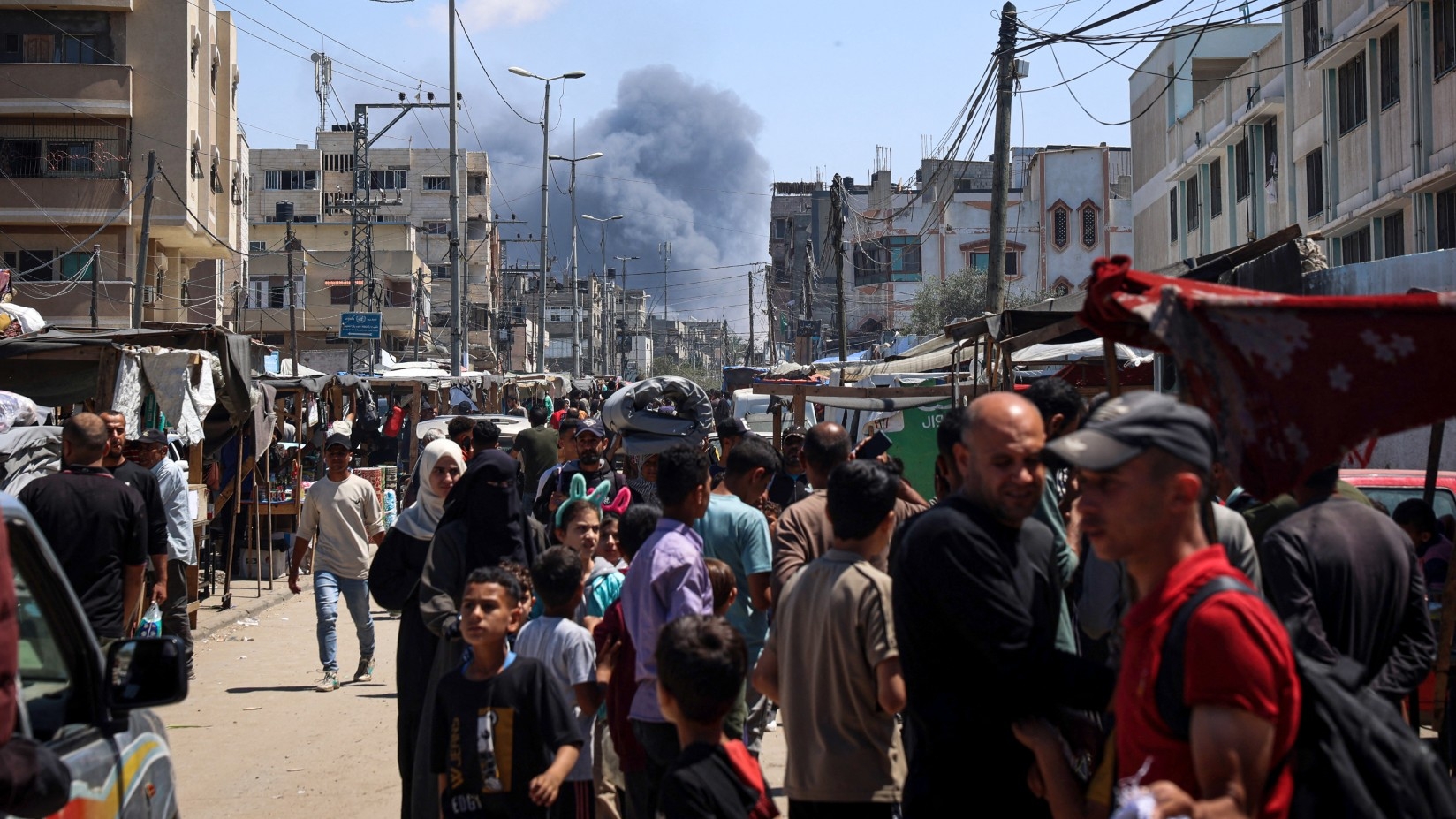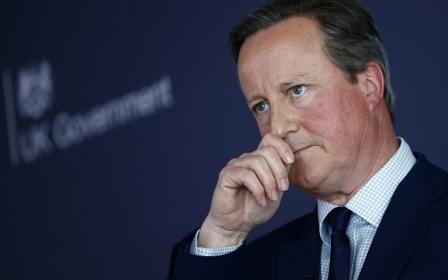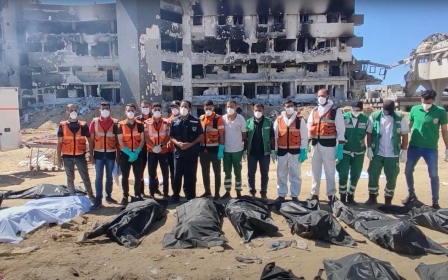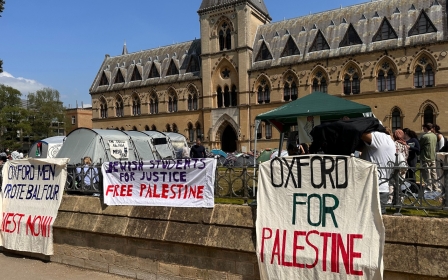Exclusive: Hamas refuses changes to ceasefire proposal as delegation leaves Cairo

A senior Hamas delegation left the Egyptian capital Cairo for Qatar early on Thursday, with sources familiar with the negotiations in Cairo telling Middle East Eye they did not entertain any changes to the proposal they accepted earlier this week after Israel walked away from the deal.
Sources told MEE that the Palestinian group was still committed to the deal proposed by mediators earlier in the week, but Hamas was leaving Cairo after two days of talks with mid-ranking Israeli officials failed to yield a breakthrough.
The Jerusalem Post, citing senior Hamas official Izzat al-Rishek, reported that Hamas was still committed to the terms of the proposed ceasefire agreement it had accepted.
In an account of the meeting provided to other Palestinian factions, according to the AFP news agency, Hamas said its delegation had left after Israel "rejected the proposal submitted by the mediators and raised objections to it on several central issues," but the statement did not explain what the differences between the sides were.
New MEE newsletter: Jerusalem Dispatch
Sign up to get the latest insights and analysis on Israel-Palestine, alongside Turkey Unpacked and other MEE newsletters
Later, an unnamed senior Israeli official was quoted by Reuters as saying that the Israeli delegation had laid out its reservations to the Hamas position, and deemed the round of Cairo talks to have ended.
The White House confirmed that CIA director Bill Burns was also leaving Cairo, but denied that the negotiations had broken down.
"Burns is departing the region as previously scheduled, but interlocutors from other delegations are still in discussions in Cairo, so those talks are still going on," national security spokesperson John Kirby told reporters. "We're going to stay engaged, in the hopes that we might be able to land something."
On Monday, Hamas said it accepted a proposal that was made up of three six-week stages and would lead to a permanent ceasefire, the full withdrawal of Israeli forces from the Gaza Strip, and an end to the siege.
The proposal, which MEE has published here, also included the release of all Israeli captives held in Gaza in exchange for a number of Palestinian prisoners to be agreed upon at a later stage.
Qatar, Egypt, the United States, and the United Nations were all listed as guarantors of the agreement.
Sources told MEE earlier this week that Burns had followed the Hamas delegation from Cairo to Qatar ahead of Monday's announcement.
Another source said that after Burns shuttled between Cairo and Doha, the agreement that emerged "was not a counter-response" but "the Egyptian-Qatari paper, with the understanding that the US supported it with the personal presence of Burns".
According to the Associated Press news agency, an Egyptian official and a western diplomat said that the draft Hamas accepted contained only "minor changes in wording" from a version the US had earlier pushed for with Israeli approval, and that the changes were made in consultation with Burns, who embraced the draft before sending it to the Palestinian group.
But within hours of Hamas saying they accepted the terms of the agreement, Israel began pummelling eastern parts of Rafah, despite warnings from the US and the UN about the dire humanitarian consequences of a military assault on such a densely populated area.
The Israeli military said it was carrying out targeted air strikes on Rafah, which it considers to be Hamas's last stronghold, and Prime Minister Benjamin Netanyahu said he would continue an offensive on the southern area with or without a hostage deal.
Biden threatens to halt weapons
Netanyahu, under pressure from far-right members of his ruling coalition, has repeatedly rejected Hamas's demands.
On Monday, his far-right coalition ally, National Security Minister Itamar Ben-Gvir, said on X, the social media platform formerly known as Twitter, that Israel should reject Hamas's latest move.
"Hamas's tricks and games have only one answer: an immediate order to occupy Rafah, increasing military pressure, and continuing the complete pounding of Hamas, until its full defeat," he added.
Since then, Israel has carpet-bombed parts of Rafah, with the Palestinian death toll in the embattled enclave rising on Thursday to nearly 35,000.
Displaced Palestinians have gathered in camps across Rafah
Drag the button to see the new camp sites
On Wednesday, US President Joe Biden said he would suspend offensive weapons transfers to Israel if it launched a full-scale invasion of Rafah.
"I made it clear that if they go into Rafah… I'm not supplying the weapons that have been used historically to deal with Rafah, to deal with the cities - that deal with that problem," Biden said in an interview with CNN's Erin Burnett.
He also expressed frustration with the planned assault on Rafah, noting that it had caused deep issues with Egypt.
"It's causing problems with, right now, in terms of – with Egypt, which I’ve worked very hard to make sure we have a relationship and help," Biden said.
"I've made it clear to Bibi and the war cabinet: they’re not going to get our support, if in fact, they go on these population centres," he added.
In response to Biden's remarks on Thursday, Ben Gvir tweeted that "Hamas ♥ Biden".
Middle East Eye delivers independent and unrivalled coverage and analysis of the Middle East, North Africa and beyond. To learn more about republishing this content and the associated fees, please fill out this form. More about MEE can be found here.





